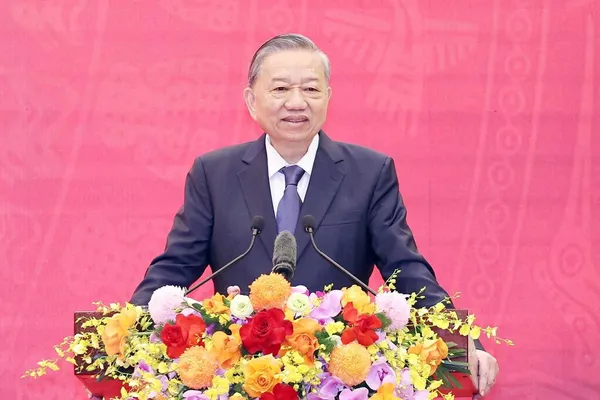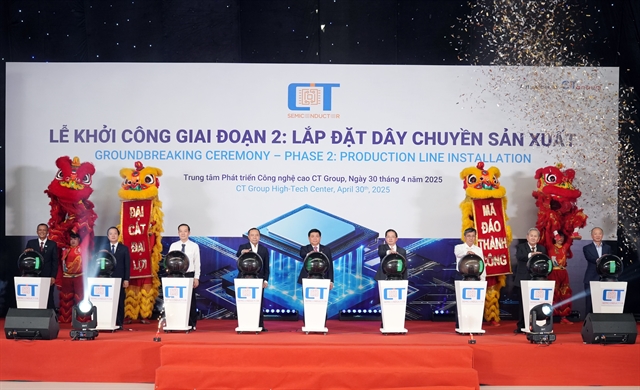

The COVID-19 pandemic has dramatically changed lives and economies around the globe, requiring governments to seek new urban management technologies and solutions to address the current crisis as well as promote economic growth in the post-pandemic period. One of the initiatives taken is the implementation of smart cities.

|
The COVID-19 pandemic has dramatically changed lives and economies around the globe, requiring governments to seek new urban management technologies and solutions to address the current crisis as well as promote economic growth in the post-pandemic period. One of the initiatives taken is the implementation of smart cities.[1]
The pandemic has shown the importance of smart cities where digital technology will help facilitate remote work and conduct financial transactions, which is crucial to keeping urban economies running.
In Southeast Asia, smart cities will play an increasingly important role in generating economic growth and tackling complex urban challenges. According to a report by McKinsey Global Institute[2], smart cities are expected to create 1.2 million - 1.5 million new jobs, prevent 260,000-270,000 kilotrons greenhouse gas emissions, and save somewhere between US$9-16 billion living expenses across ASEAN.
From the "Thailand 4.0" plan to Singapore’s “Smart Nation" initiative, governments across Southeast Asia are driving the smart city transformation process. Singapore Prime Minister Lee Hsien Loong recently at the 36th ASEAN Summit said that ASEAN could use [3] the smart city network in the region to exchange ideas and experiences in utilising technology in the fight against COVID-19. For example, technology to enhance contact tracing.
To further encourage cooperation among the 10 ASEAN member states, the ASEAN Smart City Network (ASCN) was established on April 28, 2018 to promote sustainable smart city development. The focus of ASCN's work is on improving the lives of the ASEAN people through technology. As ASEAN Chair in 2020, Viet Nam will play a key role in leading ASCN and promoting smart city development across Southeast Asia. [4]
Innovating through Hitachi’s technology
Integrating smart grids and sensors into urban infrastructure will allow governments to continuously collect data to operate cities efficiently, while cutting-edge software will enable rapid data analysis helping both government and business better understand the behaviour of people and consumers. With over 110 years of experience in the field of operational technology and 60 years of experience in the field of information technology, Hitachi has developed an extensive network of global partners focused on working together to develop technological solutions that address economic and social needs.
Over the past two years, Hitachi Vantara Vietnam has been involved in a number of smart city development consulting projects. Among them are large projects with a scale of over 1,000 hectares of complex structures, including residential areas, resort complexes, entertainment centres, and convention centres.
Hitachi smart city solutions aim to address concerns such as safety and public security with surveillance cameras and integrated access control systems, as well as optimise electricity usage through an intelligent energy management system. In addition to that, their Smart Traffic Control Platform Solution, developed with artificial intelligence technology and machine learning technology, helps to monitor and detect traffic violations. Beyond these smart city solutions, Hitachi has also developed solutions to enhance the consumer experience, such as providing access to a variety of services using an e-wallet application.
Viet Nam is emerging as one of Southeast Asia's leading FinTech centres. At the end of 2019, Viet Nam had 154 FinTech companies and is considered a "FinTech model for Southeast Asia[5] [6]". This number increased by 285% compared to 2016, when there were only 40 FinTech companies in Viet Nam.
In Viet Nam, Hitachi has researched and developed an electronic payment system (E-Money) for retirees. Retirement beneficiaries can use these electronic cards to receive retirement payments at the post office. Plans are also underway to introduce non-cash payment systems into use in Vietnamese cities such as in gas stations or stores. [7]
Aside from non-cash payments, Hitachi has also initiated a pilot project with a local finance company to provide new financial services using digital technology such as artificial intelligence. By promoting the development of cashless payment systems and AI-based financial services, Hitachi aims to play a pioneering role in helping Viet Nam become a leading FinTech hub in the region. [8]

|
Hitachi Social Innovation is about making the world a better place
A successful smart city is one that ensures the happiness of its residents and improves their quality of life by creating opportunities for both personal and community growth that can enhance the social, economic and environmental values of citizens.
By focusing on social innovation and powering good, Hitachi aims to improve people's lives through its technologies. Successful social innovation requires first and foremost a deep understanding of the problems people face in everyday life, followed by the development of technology solutions that can help solve problems.

|
In the ASEAN region, Hitachi has been combining the Internet of Things (IoT), artificial intelligence, and data analysis to create "smart spaces" in cities. Through the introduction of cashless payment systems and FinTech services, smart urban spaces are expected to bring convenience and open business opportunities to organisations and businesses.
A smart city is more than just digital and urban infrastructure. Smart city technology and social innovations can contribute to the well-being of its people. An example of this is Hitachi's efforts to use data analysis and people flow analysis to understand how people move around the city to ensure the optimal location of public facilities such as parks and childcare centres. This will improve the people's quality of life and contribute to the greater well-being of the whole community.










